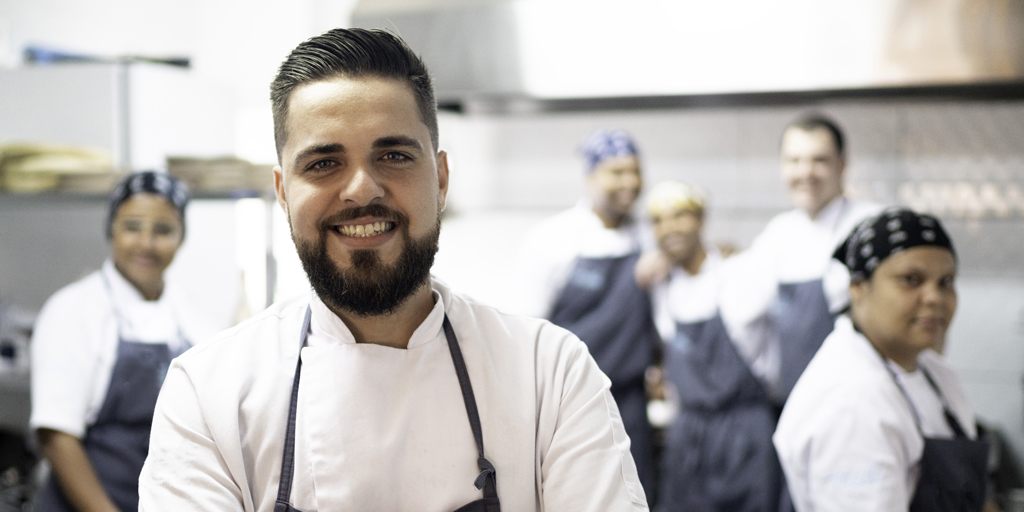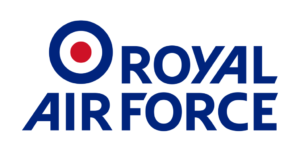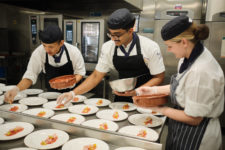Chef careers guide and job profile
If you're good with your hands and have a passion for making fantastic food - even under pressure - then you could make a great chef.
A commis chef apprenticeship is a great way to get started in a career as a chef.
Watch the video!
Getting Into Chef Careers
Do you love trying out new flavours and recipes in the kitchen? Are you the one most likely to bake a surprise for a friend’s birthday? If you’ve got stars in your eyes, is it a Michelin restaurant star you’re aiming for? People will always love to eat so if you love to cook, becoming a chef could be a tasty recipe for a good career.
What Types Of Chef Can You Be?
- Cook (in places like schools or hospitals)
- Short-order cook (in places where food moves quickly like fast-food shops)
- Commis chef (trainee or apprentice chef)
This is just the start. You can get managerial chefs, chefs specialising in one type of food… it’s all down to your interests and experience!
How Much Money Can You Earn As a Chef?
These LMI Job Trends give you a sneak peek of how much you could earn starting out for this career, and how much your salary could grow with experience.
Average Salary For Chef Jobs
Recent labour market information says you can earn on average between £13,000 and £50,000 a year as a chef in the UK.
Your starting salary can vary because of factors like level of experience, training, or location. Your salary as a chef will increase over time as you build skills, knowledge and experience.
Prezzo Jobs and Careers

The perks and support are second to none with Youth Friendly Employer Prezzo - and with growth comes opportunities!
Discover PrezzoSkills You Need To Become A Chef
Useful Skills To Put On Your CV:
- Practical skills – you’ll be good at working with your hands
- Self-management skills – you can’t be watched by a supervisor all the time while you prepare food, so being able to organise yourself and your area is an important factor
- Good number and communication skills
TOP TIP: It helps if you are able to stay calm under pressure. The kitchen can get very busy during peak periods like the evening, with everyone working fast and as safely as possible in sometimes tight, hot spaces to get the food out to customers on time.
How Do You Get These Skills?
Vocational qualifications and work experience will help you build these skills over time.
Build Your Skills With the FREE Young Professional ProgrammeWhat Qualifications & Training Do You Need For Chef Careers?
School, College And Training
When starting your journey as a trainee chef you don’t need any qualifications. You may find you stand out to employers if you have GCSEs or the equivalent in subjects like English and maths, because communication with the team is part of being a chef, and when it comes to measuring ingredients and knowing cooking timings in a fast-paced kitchen you may need to have some confidence with numbers.
You could also do a GCSE in hospitality and catering.
There are lots of college courses and vocational courses you can study related to cooking.
Useful qualifications for becoming a chef include:
- Level 2/3 certificate in hospitality and catering principles
- HNC/HND in Professional Cookery.
Career progression and further qualifications
In time you could have the opportunity for career options like becoming a section or station chef and having responsibility for a particular area, like starters or desserts. From there you could progress to be a sous chef – an assistant chef who is expected to run the kitchen when the head chef isn’t available.
Finally, you could progress to be a head chef. You’ll run the kitchen, handle the kitchen budget and very importantly you’ll be the one who creates the menus. It’s your job to mix your creative flair with an understanding of what people in your restaurant would want to eat and how much they’d be willing to pay for it. Cheap or expensive cuts? Fresh or frozen food? Curry or pasta? What kinds of vegetarian options will there be? As the head chef, you’ll decide. In a smaller kitchen, you may be expected to prepare the food yourself as head chef.
You can head even further down the management path if you become an executive chef in charge of multiple eateries, but don’t expect to do much cooking if you take this career route – you’ll be much more involved in managing the outlets.
You could also become self-employed and set up your own restaurant business.
Chef Apprenticeships
You can become a chef via an apprenticeship – there are lots of catering and chef apprenticeships available with a range of providers.
You’ll typically get structured training while you work and earn, and industry-recognised qualifications relating to food production and cooking, or professional cookery.
Learning and earning as a trainee or apprentice chef will get you a good grounding in different areas of food production, from cooking meat and baking pastries to making sauces.
While at school or college, speak to your careers advisor about useful training and/or courses for you to take and find out more about the types of career routes available.
You can seek out chef-related apprenticeships with organisations like Find an Apprenticeship.
These Employers & Training Providers Offer Chef Apprenticeships
Prezzo Restaurants Total People Skillcert Remit TrainingWhat Work Experience Do You Need For Chef Jobs?
Work Experience Tips
You can start training as a commis chef (trainee chef or apprentice chef) straight after school. If you can stand the heat, it’s time to get in the kitchen.
Help out with any catering events where someone you know. Perhaps a friend or family member needs a hand. You could discover new ways to create and present recipes and new cooking techniques. You might also learn about cooking to scale for lots of people. Cooking for twenty is quite different to cooking for one or two people, and very energetic! Remember to think about the hygiene of clean equipment and the discipline of keeping things tidy and on time, too.
Volunteering Tips
Just by cooking around the house, you can build up knowledge and experience. Volunteer to cook for special occasions, or just to help out at home. Practice different kinds of cooking, including starters, main courses, desserts and side dishes. Try out both roasting and baking… and create your own sauces by following recipes then adding your own flair.
However, volunteer cooks and chefs are always welcomed with organisations whose goal is to help vulnerable people. You could build your cooking skills by volunteering with charities who provide food for the homeless. You could donate your time to cook for them.
What Does A Chef Do?
Where could you work?
- You could work in a huge variety of locations as a chef:
- Private, chain and hotel restaurants
- Schools, pubs and cruise ships
- In the NHS or in the armed forces
- In small family-run kitchens or huge venues.
You could specialise in home cooking or Instagram-friendly cordon bleu. Wherever you work, it’s important to stick to health and safety rules, and remember that you are a part of a team.
Example daily job responsibilities
- Preparing food before cooking, from filleting fish to making sauces or cleaning vegetables
- Cooking and presenting food in a creative and appetising way
- Ensuring portion sizes are consistent
- Working under pressure in a busy and energetic environment
- Tracking orders and ensuring food is served to customers on time
- Working in line with hygiene, licensing and safety rules
- Preparing appealing menus (most likely as a head chef)
- Ordering, managing and inspecting stock (most likely as a section chef, sous chef or head chef).
Catering & Hospitality Career FAQs
What would you like to know about catering & hospitality careers? Maybe we can help!
How To Find Chef Jobs: Next Steps
To find jobs for young people in this role, search on jobs boards for early career roles with these words in the title:
- Trainee chef
- Apprentice chef
- Commis chef
- Chef work placement
- Paid chef training
- Chef work experience
These Youth Friendly Employers Offer Great Opportunities
These Youth-Friendly Employers might be able to help you get great fantastic chef jobs, training or experience! Take a look.
Catering & Hospitality Career Tips & Opportunities
Catering & Hospitality Career Guides
View job descriptions with average UK salary, useful qualifications and a variety of routes into this career.
See All Our Youth-Friendly Employers






































































YES! I Want More Free Careers Help...
So what are you waiting for? Grab your future.










































